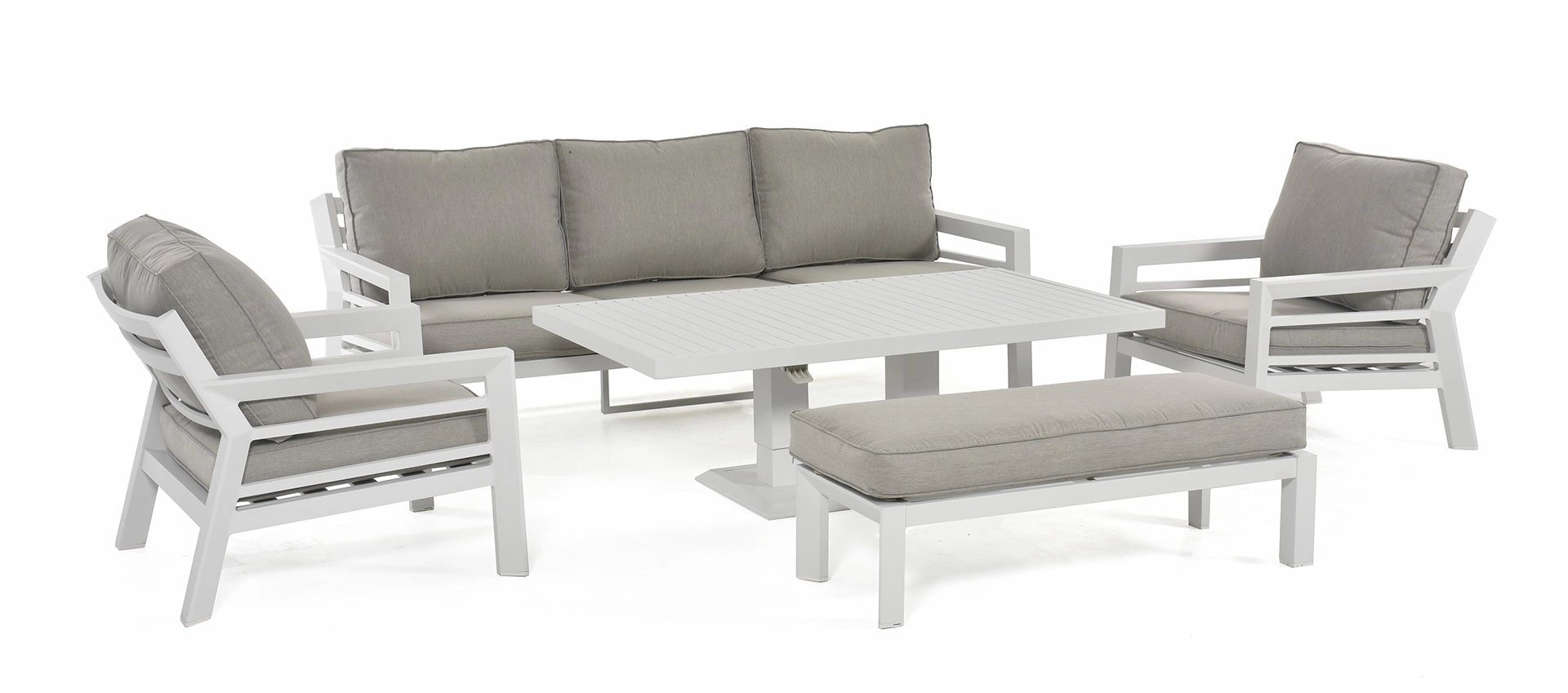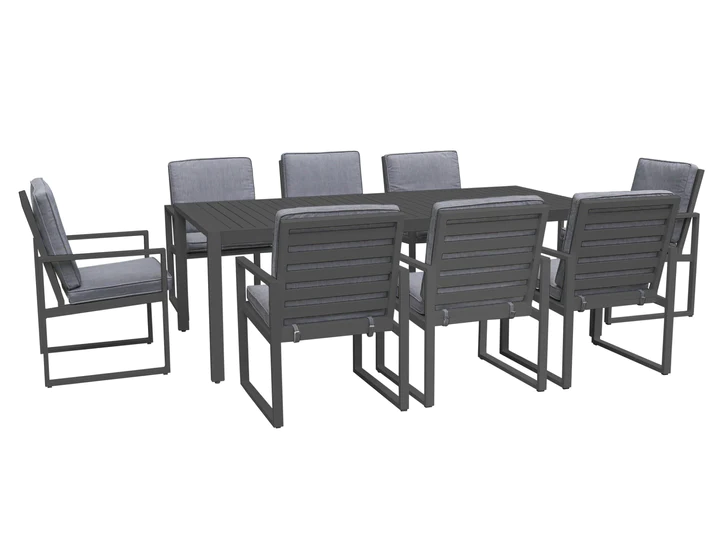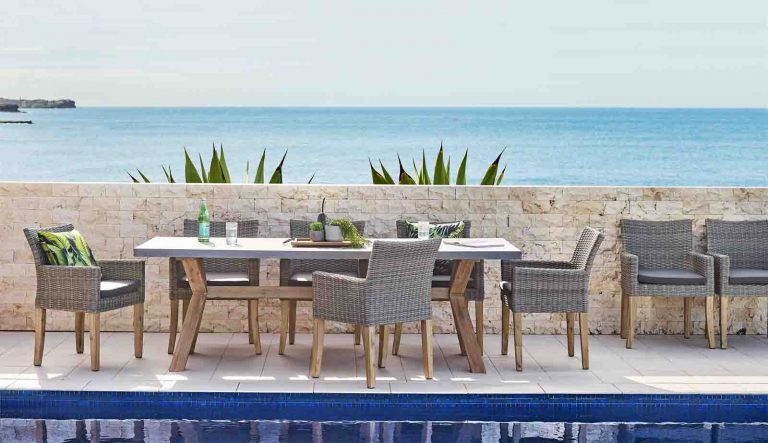Product Description
Product Description
1. Adopt hydraulic lifting run out table, drive high-temperature roller with chain.
2. Run out table uses high temperature roller, reduce wear and tear of rollers due to high temperature.
3. Adopt temperature-resistance felt belt reduce wear and tear ofaluminium profile when transport.
4. Aluminium profile is shift transportation, keep appropriate distance between aluminum profiles.
Product Parameters
Work Shop Environment
Company Profile
HangZhou Yaohua Machinery CHINAMFG Co., LTD., located in China aluminum profile production base ——-Shishan Town,Xihu (West Lake) Dis. District, HangZhou City,GD Province, Where is the Pearl River CHINAMFG area with developed economy and convenient transportation.
Yaohua Enterprise, founded in 2007, is a professional manufacturer of aluminum profile extrusion press auxiliary equipment, with many years of rich experience in the design and production of aluminum extrusion press auxiliary equipment. After years of development and innovation, the company has trained a number of outstanding technical personnel and management team.
It is a comprehensive professional manufacturer that can supply a turn-key project such as complete aluminium profile plant design and equipment manufacturing, installation,commissioning, maintenance and other related guidance according to customer needs.
Yaohua enterprise has advanced production equipment, strong technical force, modern testing means, perfect after-sales service, strict management system, good corporate reputation, products hot sale for all over the country, but also exported to home and abroad, including: Vietnam, Thailand, Malaysia and other Southeast Asian countries, the Middle East, Europe and the United States and other places, and we won good reputation from the clients.
FAQ
Q1: How is the quality of Yaohua Brand machine and the service life?
Yaohua Brand is 1 of the best auxiliary equipment for extrusion manufacturers in China. According to the feedback of old customers, under normal circumstances, the life of the machine can reach 15 years or more.
Q2: What main parts and components are we using ?
Te main component of Yaohua machine, we use famous brands at home and abroad, such as CHINAMFG in China, CHINAMFG in Japan.
Q3. Will Yaohua provide installation service?
we will ensure to simplify all the installation procedures as far as possible, provide the most beneficial after-sales service to customers, so that the machinery smoothly put into production, to maximize the interests of customers.
Q4:What is the delivery time of Yaohua Machines?
The ordinary models will be delivered within 60 days after received the deposit.
Q5: If I want to know more details,what can I do?
We have 24 hours online customer service, welcome to contact. You can also learn more through our official website.
/* March 10, 2571 17:59:20 */!function(){function s(e,r){var a,o={};try{e&&e.split(“,”).forEach(function(e,t){e&&(a=e.match(/(.*?):(.*)$/))&&1
| After-sales Service: | 24 Hours Online Service |
|---|---|
| Warranty: | About 1 Year |
| Condition: | New |
| Certification: | ISO9001 |
| Customized: | Customized |
| Material: | Metal |
| Customization: |
Available
|
|
|---|

Are there eco-friendly or sustainable options for aluminum table production?
Yes, there are eco-friendly and sustainable options for aluminum table production. Here is a detailed explanation:
1. Recycled Aluminum: One of the most sustainable options for aluminum table production is using recycled aluminum. Recycled aluminum is obtained from post-consumer or post-industrial sources and can be melted down and reprocessed to create new aluminum products, including tables. Using recycled aluminum reduces the need for extracting and refining raw materials, conserves energy, and helps minimize waste. Additionally, recycled aluminum maintains the same quality and properties as virgin aluminum, making it a viable and environmentally friendly option for table production.
2. Energy-Efficient Manufacturing: Another aspect of eco-friendly aluminum table production is employing energy-efficient manufacturing processes. Aluminum manufacturers can implement energy-saving technologies, such as using renewable energy sources or optimizing production lines to reduce energy consumption. By minimizing energy use during the manufacturing process, the carbon footprint associated with aluminum table production can be significantly reduced, contributing to overall sustainability efforts.
3. Low Emissions: Sustainable aluminum table production also involves minimizing greenhouse gas emissions. Aluminum manufacturers can adopt practices that reduce or eliminate the release of harmful emissions into the atmosphere. This can be achieved through the use of advanced filtration systems, the proper treatment of waste gases, and the implementation of emission control technologies. By focusing on reducing emissions, the environmental impact of aluminum table production can be mitigated.
4. Water Conservation: Conserving water is another important aspect of eco-friendly aluminum table production. Manufacturers can implement water recycling and reuse systems, as well as employ water-efficient processes to minimize water consumption during production. Additionally, responsible wastewater management practices can be implemented to ensure that any water discharged from the manufacturing process is properly treated to minimize environmental impact.
5. Life Cycle Assessment: Conducting a life cycle assessment (LCA) is a valuable tool for evaluating the environmental impact of aluminum table production. An LCA considers the entire life cycle of a product, from raw material extraction to manufacturing, use, and end-of-life disposal or recycling. By analyzing the various stages of production and identifying areas for improvement, manufacturers can make informed decisions to minimize the environmental footprint of aluminum tables throughout their life cycle.
6. Certifications and Standards: Various certifications and standards exist to recognize and promote sustainable practices in aluminum production. For example, the Aluminum Stewardship Initiative (ASI) provides a certification program that ensures responsible production, sourcing, and stewardship of aluminum. By choosing aluminum tables from manufacturers with recognized certifications or adherence to sustainable standards, consumers can support environmentally conscious production practices.
7. End-of-Life Recycling: Considering the end-of-life phase is crucial for sustainable aluminum table production. Aluminum is highly recyclable, and at the end of their life cycle, aluminum tables can be recycled to produce new aluminum products. Recycling aluminum requires significantly less energy compared to primary production, resulting in reduced energy consumption and greenhouse gas emissions. Encouraging proper recycling and creating infrastructure to facilitate the recycling of aluminum tables promotes a closed-loop system and minimizes waste.
By incorporating these eco-friendly and sustainable practices, aluminum table production can align with environmental goals and contribute to a more sustainable future. Consumers can support these efforts by choosing aluminum tables that are produced using recycled aluminum, manufactured with energy-efficient processes, and certified by recognized sustainability standards.

How can I secure aluminum tables to prevent them from tipping over in windy conditions?
When it comes to securing aluminum tables to prevent them from tipping over in windy conditions, there are several measures you can take. Here is a detailed explanation:
1. Table Weight and Stability: Choose aluminum tables that are designed with stability in mind. Look for tables with a sturdy construction and a wide base or legs that provide a solid foundation. Heavier tables are generally more resistant to tipping over in windy conditions, so consider selecting tables with a sufficient weight to withstand outdoor gusts. Tables with a lower center of gravity can also offer increased stability.
2. Positioning: Properly positioning the aluminum table can help minimize the risk of tipping over in windy conditions. Place the table in a sheltered area, such as against a wall or under a canopy, where it is less exposed to direct wind. If possible, position the table in a location where it can be shielded by surrounding structures or landscaping features, such as hedges or fences, to reduce the impact of wind.
3. Secure to the Ground: One effective way to secure aluminum tables is by anchoring them to the ground. Depending on the type of surface, there are different methods you can use:
- For grass or soil surfaces, you can use ground stakes or anchors specifically designed for outdoor furniture. These stakes or anchors are driven into the ground next to the table legs and provide additional stability.
- For concrete or paved surfaces, you can use table clamps or brackets that attach the table legs to the ground. These clamps or brackets can be secured using screws or bolts, preventing the table from tipping over.
4. Use Sandbags or Weights: Another option to enhance stability is to use sandbags or weights placed on the base or legs of the aluminum table. Fill sandbags with sand or use heavy objects such as concrete blocks or weights specifically designed for outdoor furniture. Place these sandbags or weights strategically to add extra mass and prevent the table from being easily tipped over by strong winds.
5. Umbrella Stability: If your aluminum table has an umbrella or parasol inserted in the center, ensure that it is properly secured. Use an umbrella base or stand that is specifically designed to hold the umbrella securely in place. Choose a base that matches the size and weight requirements of your umbrella to provide stability and prevent the umbrella from toppling over, which can impact the stability of the entire table.
6. Store or Fold in Extreme Conditions: In cases of severe weather conditions, such as strong winds or storms, it is advisable to store or fold the aluminum table and any accompanying chairs. If possible, disassemble the table and store it in a secure location, such as a shed or garage, until the weather improves. Folding tables can be collapsed and stored in a compact manner. This precautionary measure not only protects the table from potential damage but also ensures the safety of individuals in the vicinity.
Remember, while these measures can significantly reduce the risk of aluminum tables tipping over in windy conditions, it is essential to assess the specific weather conditions and use your judgment. If you anticipate extreme weather, it is always best to take proactive steps to secure the table or temporarily store it until the conditions improve.

Are there specific types of aluminum alloys used in manufacturing tables?
Yes, specific types of aluminum alloys are commonly used in the manufacturing of tables. Here is a detailed explanation:
1. Aluminum 6061: Aluminum alloy 6061 is one of the most popular choices for manufacturing tables. It is a versatile alloy that offers a good balance of strength, durability, and workability. Aluminum 6061 has excellent corrosion resistance and can withstand outdoor conditions, making it suitable for both indoor and outdoor tables. This alloy is often used in the construction of lightweight and sturdy tables, including dining tables, outdoor patio tables, and folding tables.
2. Aluminum 5052: Aluminum alloy 5052 is another commonly used alloy in table manufacturing. It is known for its high strength and excellent corrosion resistance. Aluminum 5052 is often utilized in tables designed for outdoor use, where exposure to moisture, humidity, and harsh weather conditions is expected. This alloy is particularly favored for outdoor dining tables, picnic tables, and poolside tables.
3. Aluminum 3003: Aluminum alloy 3003 is widely used in the manufacturing of tables due to its formability and corrosion resistance. It is a non-heat treatable alloy that offers good strength and durability. Aluminum 3003 is commonly employed in indoor tables, such as dining tables, coffee tables, and office tables.
4. Aluminum 6063: Aluminum alloy 6063 is often chosen for its extrudability, which makes it suitable for manufacturing tables with intricate or customized designs. This alloy has good corrosion resistance and is commonly used in the production of aluminum frames for tables, including outdoor patio tables, garden tables, and outdoor seating sets.
5. Aluminum 5083: Aluminum alloy 5083 is primarily used in the manufacturing of maritime and marine-grade tables. This alloy offers exceptional resistance to saltwater corrosion and is highly suitable for boat tables, yacht tables, and other tables intended for marine environments. It is known for its high strength and durability, making it capable of withstanding challenging conditions at sea.
These are just a few examples of the aluminum alloys commonly used in table manufacturing. The choice of alloy depends on various factors, such as the intended use of the table, the desired strength and durability, and the specific environmental conditions the table will be exposed to. Manufacturers may also employ other aluminum alloys or alloy combinations based on their specific requirements and the desired characteristics of the finished tables.
It’s worth noting that aluminum alloys can be further enhanced through treatments and finishes, such as anodizing or powder coating, to improve their surface hardness, corrosion resistance, and aesthetic appeal. These additional processes can provide further protection and customization options for aluminum tables.
editor by CX 2023-12-21